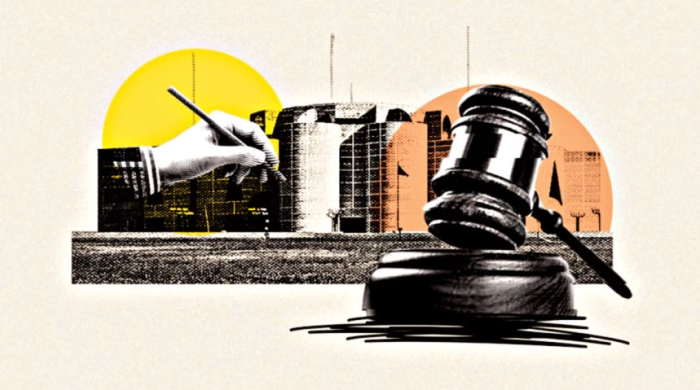
The tenure of the National Consensus Commission expired yesterday, with the National Citizen Party and four leftist parties yet to sign the July charter of reforms.
Meanwhile, three major parties — the BNP, Jamaat-e-Islami and NCP — remain divided over how to implement the constitutional reforms in the charter.
The commission submitted its recommendations on implementing the July National Charter 2025 to Chief Adviser Prof Muhammad Yunus on October 28.
It proposed that the government issue a July Charter Implementation (Constitutional Reform) Order and hold a referendum to secure public endorsement under that order.
It also recommended giving the next parliament a dual mandate for 270 days to oversee the constitutional reforms while performing legislative duties. If it fails to complete the reforms within the timeframe, the proposals would automatically be incorporated into the constitution.
However, five parties — the NCP, the Communist Party of Bangladesh (CPB), Bangladesher Samajtantrik Dal (Basod), Bangladesh Jatiya Samajtantrik Dal (JSD), and Bangladesher Samajtantrik Dal (Marxist) — did not sign the charter.
Contacted yesterday evening, NCP Joint Convener Javed Rasin told The Daily Star that his party would sign once the government issued the referendum order.
The four leftist parties said they could not sign any document, even with dissent notes, that risks altering the constitution’s four fundamental principles: democracy, socialism, secularism, and nationalism.
CPB General Secretary Abdullah Al Kafi Ratan said the party opposed any move preventing future legal challenges to the charter.
When The Daily Star approached Prof Ali Riaz, vice-president of the commission, yesterday, he said that with the commission’s term now over, he would return to academic work but “continue monitoring developments in a personal capacity”.
Asked if the NCP could still sign, he said that since the commission no longer exists, the party could now sign directly with the government.
According to the Chief Adviser’s Office, Monir Haidar, special assistant (consensus) to the chief adviser, will now oversee matters related to charter signing.
Contacted for comments, Monir told The Daily Star, “I will do whatever the chief adviser advises me to do.”
The government formed the seven-member commission on February 13 to build political consensus on the recommendations of six reform bodies.
Chaired by the chief adviser, it included Prof Ali Riaz, head of the Constitutional Reform Commission; Abdul Muyeed Chowdhury, head of the Public Administration Reform Commission; Safar Raj Hossain, head of the Police Reform Commission; Badiul Alam Majumder, head of the Election Reform Commission; Justice Emdadul Haque, head of the Judiciary Reform Commission; and Dr Iftekharuzzaman, head of the Anti-Corruption Reform Commission.
Its mandate was to engage political parties and stakeholders from the 2024 uprising and forge national agreement on reforms in elections, public administration, the judiciary, anti-corruption systems, and policing.
In the July charter, the commission drafted 84 proposals after two rounds of negotiation. Half of the proposals were related to constitutional reforms, with the BNP and allies recording dissent on at least nine points.
In a rare show of unity, 24 parties signed the charter on October 17 at the South Plaza of the Jatiya Sangsad Bhaban. The Gonoforum added its signature two days later.
The final draft went to all parties on September 10, followed by a third round of talks on implementation.
Parties agreed that non-constitutional reforms would proceed via ordinances and executive orders, while constitutional changes would go to referendum, though no consensus was reached on the referendum’s timing, procedure, or framework.
After concluding the third round on October 14, the commission circulated the final charter, seeking firm commitments to full implementation.
The document requires parties to pledge not to challenge its legality in court and to support its inclusion in the constitution, whether as a schedule or another section.
On October 17, facing pressure from a group called the July Warriors, the commission made last-minute amendments, adding safeguards on legal indemnity, fundamental rights, and protection for families of July martyrs and injured protesters.